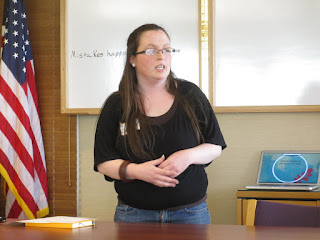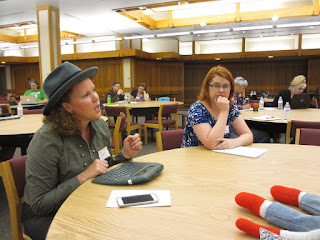There’s a saying that measuring performance increases performance. With that in mind, I’ve measured my short story submissions and rejections for quite some time, and now I’ll share my 2016 data in all its glory and compare it to 2015. To scale expectations, this is an evenings-and-weekends thing for me.
If the numbers don’t seem to match up quite right, some submissions and their acceptance or rejection span a year-end, so the numbers don’t really add up as a self-contained block of 2016-related work.
Rejections included two honorable mentions at Writers of the Future. While this is a promising sign, it’s still a very polite rejection that comes with a nice certificate. Honorable mention there means you’re roughly in the top 10% of a pool of non-professionals.
One of my pending entries is a finalist in a contest, so we’ll see how that goes in February. It will become either a new anthology publication or a new rejection. Last year I was a runner-up in the same contest and was still included in that year’s anthology as one of my 2015 acceptances.
In the novel category, I have one submission titled “Crystal King” in editing at Immortal Works. The sequel “Crystal Queen” first draft is 30% done. Technically, I have two submissions and two offers but ended up passing on the first.
While at first blush it looks like I worked harder and saw less success, that’s not really the way it happened. So much of this is subjective that the hard numbers need a whole stack of footnotes to make sense. Several things went very well.
If the numbers don’t seem to match up quite right, some submissions and their acceptance or rejection span a year-end, so the numbers don’t really add up as a self-contained block of 2016-related work.
Statistics
| Short Story Statistics | 2015 | 2016 |
|---|---|---|
| Submissions | 13 | 30 |
| Acceptances | 3 | 2 |
| Rejections | 6 | 21 |
| Pending | 4 | 7 |
| Max submissions per story | 3 | 6 |
Rejections included two honorable mentions at Writers of the Future. While this is a promising sign, it’s still a very polite rejection that comes with a nice certificate. Honorable mention there means you’re roughly in the top 10% of a pool of non-professionals.
One of my pending entries is a finalist in a contest, so we’ll see how that goes in February. It will become either a new anthology publication or a new rejection. Last year I was a runner-up in the same contest and was still included in that year’s anthology as one of my 2015 acceptances.
In the novel category, I have one submission titled “Crystal King” in editing at Immortal Works. The sequel “Crystal Queen” first draft is 30% done. Technically, I have two submissions and two offers but ended up passing on the first.
Analysis of submission info
While at first blush it looks like I worked harder and saw less success, that’s not really the way it happened. So much of this is subjective that the hard numbers need a whole stack of footnotes to make sense. Several things went very well.
- I wrote more, improving my skills as an author.
- I submitted more, getting my work in front of more people. Some of my older stories should likely be retired instead of continuing to make the rounds.
- I networked more, and have a lot more contacts and friends in the business.
- I attended several conferences and conventions. This served three purposes.
- Listen to presentations to improve my skill.
- I gave presentations and sat on panels to share what I know.
- I sold books at a table or booth with author friends to pool our efforts.
- I’ve been president of a chapter of the League of Utah Writers for almost a year, and I’ve had the privilege of bringing in a monthly presenter from the local writing community.
2016 Goals
I set some goals last year and did fairly well, but didn’t hit everything.- 😀I attended four conferences as networking opportunities.
- 😟I recruited new beta readers but didn’t get four specific new readers like I had specified in my goal.
- 😀I have a publishing deal with Immortal Works for my novel “Crystal King.”
- 😀I submitted several more than four short stories to publishers.
- 😟I did not get invited to an anthology.
2017 Goals
New Year’s Day is coming, so I’ll take the opportunity to set more goals. These may not look like much, but there are reasons behind each goal.- Finish and publish “Crystal Queen” with Immortal Works. They have dibs on sequels.
- Speak at three conferences (panelist, presenter or moderator). Most likely are LUW spring and fall conferences, LTUE, Salt Lake Comic Con, and FanX. I’m likely to attend all five either way.
- $200 in face-to-face book sales at conventions and conferences.
- Publish four short stories. (stepping things up from the 3 and 2).

























































